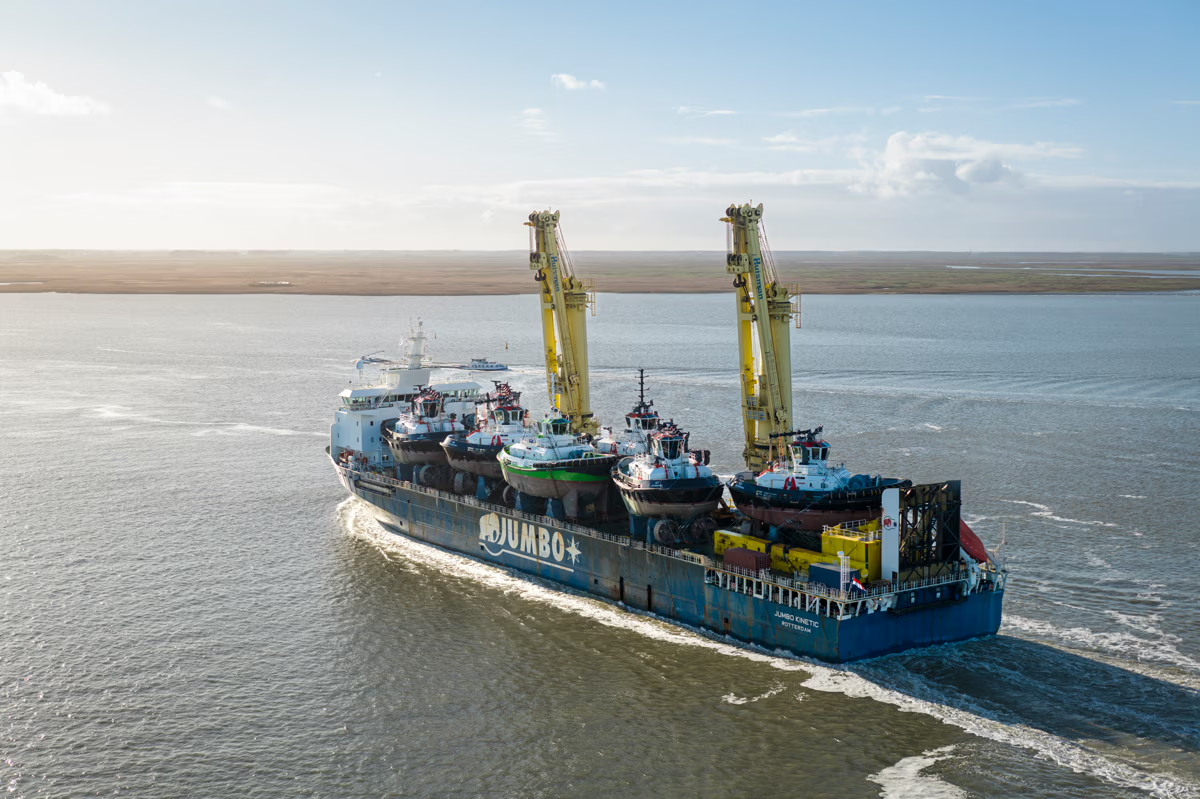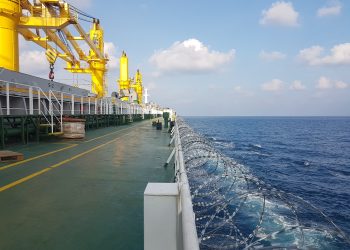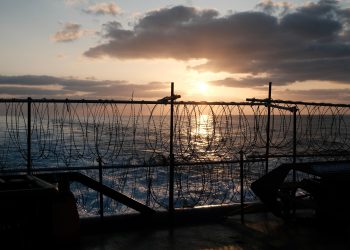Expats Ordered Out of Country, Bancroft May Take Over Project
 On Wednesday June 6th, the principals of Sterling Corporate Services (SCS) were summoned to a meeting in the UAE. The sponsors of the two-year-old program announced to SCS that funding was to cease and that all expatriates (expats) must be out of Somalia by the end of June. The move came as a surprise since not only had the program just reached its operational status but a series of lightening raids had sent pirates along the coast of Puntland into a chaotic retreat. The program was already in financial arrears and the short notice and slammed wallet caused a serious shortage of operational funds.
On Wednesday June 6th, the principals of Sterling Corporate Services (SCS) were summoned to a meeting in the UAE. The sponsors of the two-year-old program announced to SCS that funding was to cease and that all expatriates (expats) must be out of Somalia by the end of June. The move came as a surprise since not only had the program just reached its operational status but a series of lightening raids had sent pirates along the coast of Puntland into a chaotic retreat. The program was already in financial arrears and the short notice and slammed wallet caused a serious shortage of operational funds.
The widely spread out group of around one hundred mostly African and South African expats and their approximately 800 Somali Marines of the Puntland Marine Police Force (PMPF) were left stranded with no cash for food, fuel or salaries.
Back at the PMPF base, just west of Bosaso airport, there now sits millions of dollars in heavy construction equipment, fixed and rotary wing aircraft, ocean-going ships, RHIBs, heavy transport trucks and 4X4 vehicles that suddenly became idle. Pirates like Isse Yulux who had fled the PMPF with his two hijacked tankers from Hafun to Calulla must have breathed a sigh of relief as he anxiously awaited a hastily negotiated ransom drop.
Timing and Tenacity
The timing does not seem to be coincidental. Next week the UAE is hosting their second anti-piracy conference in Dubai and the UN’s Somalia Eritrea Arms Monitoring Group (SEMG) will be releasing their report in early July. An early draft, expected to be highly critical of the PMPF program, was turned in two weeks ago for review.
The UN has been aggressively trying to shut down President Farole’s anti-piracy program and has published a number of inaccurate or speculative statements about the real purpose of the program along with yet to be proven links of the Puntland president to piracy. The UN’s mixed message of encouraging local stake holders to fight piracy while personally threatening former PMPF expat trainers via letters has led to increased tensions between the operators of the PMPF program and the UN.
Despite this hostility from the UN, the Puntland and Mogadishu-based program has tenaciously beefed up their staff, recruits, equipment and activities. Three major shipments from the UAE delivered thousands of tons of new equipment while a chartered Antonov was kept busy ferrying in staff and supplies.
The force transitioned from well drilling and delivery of water, medical and food supplies into actually entering pirate held areas. Initially the PMPF’s entry into lawless regions were peaceful as pirates melted away and local politicians listened to the Puntland government’s promises of aid, security and development.
The security provided by the militarized police force allowed Puntland government officials to sit down and negotiate with a range of friendly to hostile communities. In some areas like Hafun, the pirates and government were one and the same. Last month the PMPF went operational against two pirate groups who had hijacked a chemical tanker and large Suezmax oil tanker. The pirates organized locals into a hostile welcoming committee that included women throwing rocks and men firing weapons into the air. To their surprise the Puntland government officials simply ordered them arrested. In a behind the scenes political move designed to reduce tensions, the middle-aged pirates jailed in Bosaso were magically transformed into innocent teenage fishermen and returned back to Hafun.
The legal application of rule of law may have been confusing but the message from President Farole was clear. Piracy in Puntland was on its way out.
Pirates and Now Contractors, On the Move
The Isse Yulux pirate group found themselves without political or land cover. A helicopter was employed to track his armed groups movements and when villagers fingered him, he was attacked from the air.
Shots were exchanged, pirates arrested and pirate gun trucks were destroyed. Casualties were also taken on both sides. Although there were no casualties during this operation in the past, three PMPF members (including one expat) died and between two and three pirates have been killed in recent operations. The use of an unarmed helicopter used as a shooting platform but originally designed for medevac may have been the tipping point that led to the UAE demand to shut down the program. Although it is not clear what was the trigger, the UN has also been vocal about its disproval of the Puntland program. The UN-approved efforts against piracy include a wide spectrum of concepts including naval activities, sanctions, outside nation training, prosecution, building prisons but no direct help to kidnapped mariners or interdiction of pirate groups. They have also focused on harassing private security providers and specifically the PMPF with on the record comments, threats of sanctions and active investigations on the same level as their focus on terrorists and pirates. The SEMG bombastically described the UAE and Puntland’s anti-piracy program as the “most egregious threat” to peace and security in Somalia.
The twenty-year-old arms embargo against Somalia was designed to stop the flow of weapons to warring factions in Mogadishu but but has resulted in the UN actively working to shut down the only operational land-based anti-piracy program in Somalia. Conversely the UAE has never publically acknowledged its financial support of the PMPF nor have they sent a notification letter to the Security Council advising them of their sponsorship of the program.
The UAE is Puntland’s largest regional trading partner and the semi-autonomous region is strategically situated in one of the world’s busiest shipping lanes. Piracy began in Puntland in the last decade and has shifted southward to Galmadug. However the eastern and northern coasts of Puntland are, or rather, would be perfect locations to base a coast guard to deter pirates.
The expected flow of oil, up to 300 million barrels, also means that either Bosaso or Hafun may become a strategic oil shipping point. All of these things are within the UAE’s strategic interest. The presence of violent Wahhabist Islamic groups like al-Shabaab and al-Qaeda along the Gulf of Aden in Yemen and Northern Somalia would also make Puntland a critical partner in being gatekeepers in preventing attacks at the soft underbelly of Dubai and Abu Dhabi.
There were a number of reasons to turn a blind eye to the UAE support of the program even mirroring US shadow activities in the region. This led US diplomatic opinions to be non-critical, but also publicly non-supportive.
The program was originally secret but quickly began to operate openly even including numerous media visits, including Oliver North from Fox News. The contractor communicates PMPF activities via press releases and the Puntland government issues official press releases. Both the TFG and Puntland notified the UN of their support of this program but were rebuffed by the UN as being unrecognized governments.
The End of Land-Based Anti-Piracy?
The status of the program going forward has not been clearly determined. Although numerous experts and numerous conferences insist that a sustainable land based approach to ending piracy is the key, there has been very little definition of what that solution would be and even less cash to create one. The UAE’s robust program was rarely discussed and never promoted as a solution even though it operated in plain sight. The EU has begun attacks on land and their have been sporadic and dubious attempts to deter piracy but none with the scope and impact of the UAE program.
There is some discussion as to another contractor taking over the program and there is speculation that a contractor more in line with the UN and AMISOM mission will caretaker the assets until Somalia has a functioning, recognized government in Mogadishu. A US senator and intelligence officers have visited the camp and there is speculation that a British contractor may be in the running. The CIA runs the Puntland Intelligence Agency from Camp Lemonnier and a compound in Bosaso so there may be better coordination between anti terrorism forces now that al-Shabaab is moving into the nearby Golis mountains.
Other guesses are that long time US/Ugandan/AMISOM contractor, Bancroft Global, may be a candidate. Owner Mike Stock has been in private discussions with the UAE and Bancroft personnel have been seen building a camp in Mogadishu’s old harbor. The presence of a UAE flag and nautical location can only mean that this location would be ideal for naval or coast guard support activity. There is no shortage of eager contractors who would love to what is estimated to be a ten million dollar a year program with well over that invested to date in construction, equipment and overhead.
The future of the PMPF may also be up to President Farole. He has constantly stressed that he sees this program as being national. Although there are no pirates operating in southern Somalia, the PMPF was going to train 150 recruits but their departure was blocked by AMISOM officials at the Mogadishu airport. Pirates still flourish in central Galmadug and there is no land based activity to curtail their operations.
The future of the PMPF is now in jeopardy but the need for land-based anti-piracy has not diminished. One major concern voiced in the UN reports was that the PMPF essentially provided President Farole with a professional military and police force that could be used to consolidate his power as the region moves towards joining Somalia. A professionally trained, brigade-sized force with land, air and sea assets would be Somalia’s only mobile indigenous military force. There may have been pressure on the UAE to shut down Puntland’s force in advance of the UN backed transition.
The TFG is supposed to transition to a legitimate government in August which would allow the PMPF program to ideally become a legitimate state sponsored activity.
For now, all expats are expected to leave Bosaso and a caretaking group will arrive from the UAE to determine the next steps for the PMPF program.
Source: Somalia Report

























































